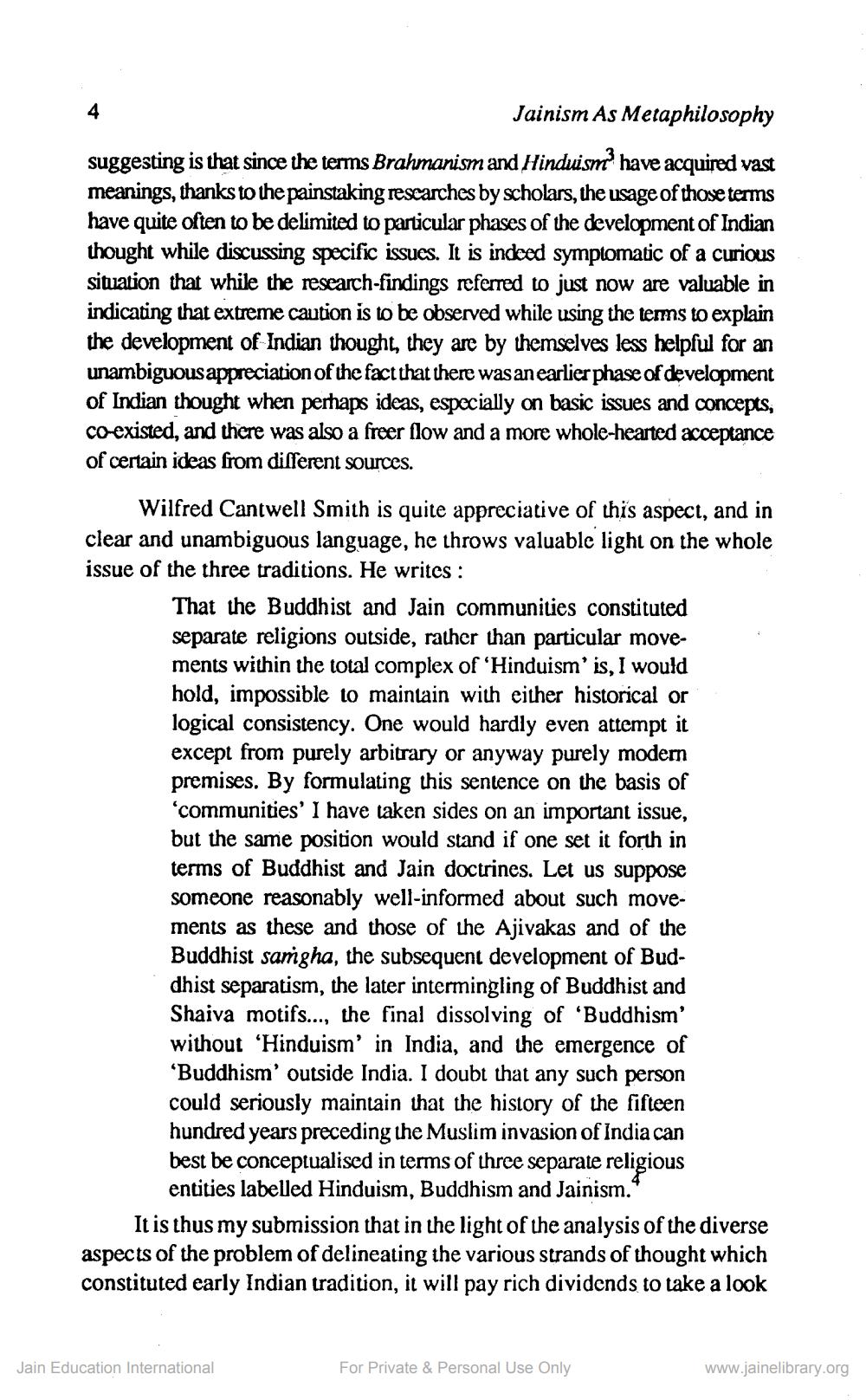________________
Jainism As Metaphilosophy
suggesting is that since the terms Brahmanism and Hinduism3 have acquired vast meanings, thanks to the painstaking researches by scholars, the usage of those terms have quite often to be delimited to particular phases of the development of Indian thought while discussing specific issues. It is indeed symptomatic of a curious situation that while the research-findings referred to just now are valuable in indicating that extreme caution is to be observed while using the terms to explain the development of Indian thought, they are by themselves less helpful for an unambiguous appreciation of the fact that there was an earlier phase of development of Indian thought when perhaps ideas, especially on basic issues and concepts, co-existed, and there was also a freer flow and a more whole-hearted acceptance of certain ideas from different sources.
4
Wilfred Cantwell Smith is quite appreciative of this aspect, and in clear and unambiguous language, he throws valuable light on the whole issue of the three traditions. He writes:
That the Buddhist and Jain communities constituted separate religions outside, rather than particular movements within the total complex of 'Hinduism' is, I would hold, impossible to maintain with either historical or logical consistency. One would hardly even attempt it except from purely arbitrary or anyway purely modern premises. By formulating this sentence on the basis of 'communities' I have taken sides on an important issue, but the same position would stand if one set it forth in terms of Buddhist and Jain doctrines. Let us suppose someone reasonably well-informed about such movements as these and those of the Ajivakas and of the Buddhist samgha, the subsequent development of Buddhist separatism, the later intermingling of Buddhist and Shaiva motifs..., the final dissolving of 'Buddhism' without 'Hinduism' in India, and the emergence of 'Buddhism' outside India. I doubt that any such person could seriously maintain that the history of the fifteen hundred years preceding the Muslim invasion of India can best be conceptualised in terms of three separate religious entities labelled Hinduism, Buddhism and Jainism."
It is thus my submission that in the light of the analysis of the diverse aspects of the problem of delineating the various strands of thought which constituted early Indian tradition, it will pay rich dividends to take a look
Jain Education International
For Private & Personal Use Only
www.jainelibrary.org




